April 1994, Volume 5, Issue 2
Is Russian Democracy Doomed? A Communist Setback
Read the full essay here.
April 1994, Volume 5, Issue 2
Read the full essay here.
April 1994, Volume 5, Issue 2
Read the full essay here.
April 1994, Volume 5, Issue 2
Read the full essay here.
January 1994, Volume 5, Issue 1
Read the full essay here.
October 1992, Volume 3, Issue 4
Read the full essay here.
January 1992, Volume 3, Issue 1
Read the full essay here.
Fall 1990, Volume 1, Issue 4
Read the full essay here.
Winter 1990, Volume 1, Issue 1
Read the full essay here.
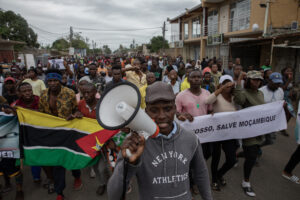
People are calling for a so-called unity government to stem the violence in Mozambique. But there is a better way to set the country on the right course.
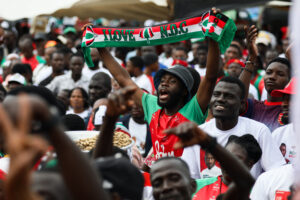
The West African democracy is one of the continent’s most enduring, but it shouldn’t be taken for granted. It’s a bulwark for democracy beyond its borders.
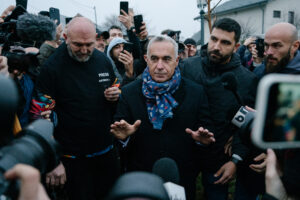
The Romanian government is trying to guard against Russian election interference. But such a drastic, unexpected, and last-minute move risks undermining people’s faith in democracy.
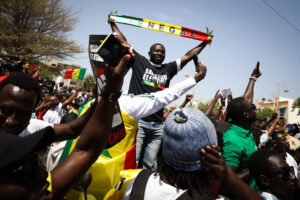
In February, the West African country appeared to be on the cusp of chaos as its president tried to seize power for himself. How Senegal became one of 2024’s biggest democratic success stories.
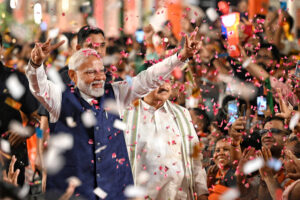
The “year of elections” is entering its final stretch, and the contests of 2024 have run the gamut. We saw landslides, charades, and — in democratic and authoritarian settings alike — a fair number of surprises. What were the most significant elections of the year so far?

The ANC lost its majority for the first time, but populist forces were held at bay.
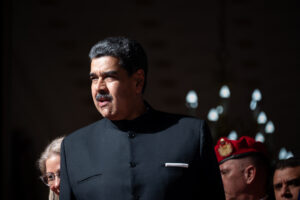
The strongman lost in a landslide, and the Venezuelan people are paying the price.
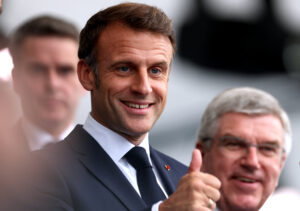
The French president made a big bet, and the far right lost.
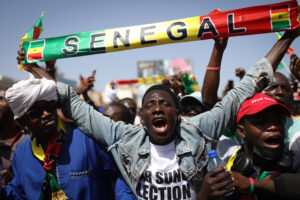
The president wanted to remain in power, but the people’s demands prevailed in the end.
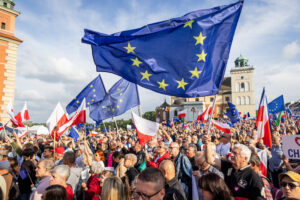
If mainstream parties don’t listen to voters, extremists will be rewarded at the ballot box.

For all the warning signs, India held the line after a decade of backsliding.
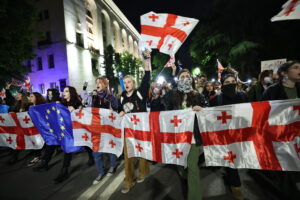
Georgia’s opposition is facing a pivotal election. But it isn’t enough to win: They need to be prepared to move quickly, mobilize the public, and force the regime to concede.
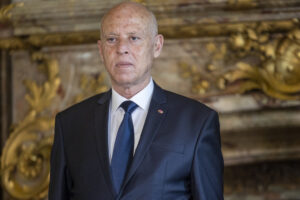
Kais Saied is claiming a landslide election win. The truth is he was never willing to face a real competition. Just how insecure he feels will likely determine how much more repressive he will become.
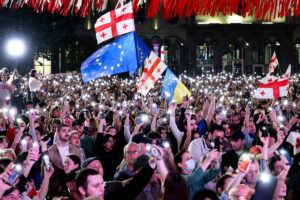
Later this month the country will be holding an absolutely pivotal election. The stakes? Whether Georgia will remain anchored to the West or become Vladimir Putin’s newest satellite state.
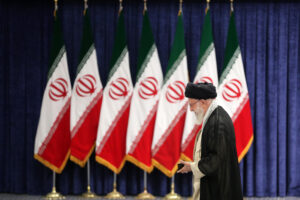
The country’s recent elections revealed deep fissures in Iranian society and there is already growing disillusionment with the new president. With mounting economic worries, Iran is in a volatile state.
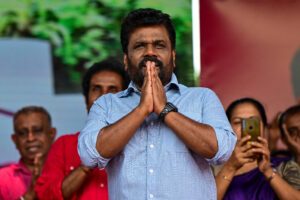
A few years ago Anura Kumara Dissanayake led a struggling political party with bleak prospects. Now he is Sri Lanka’s newly elected president. The hardest work may still lie ahead.

The far-right Alternative for Germany is no longer a mere protest party. It’s tapping into widespread discontent and is surprisingly popular with young voters. Even more, it is reshaping the political future of Germany.

The Venezuelan strongman lost the election and everyone knows it. He has nothing left to offer but violence and repression. It will be his undoing.
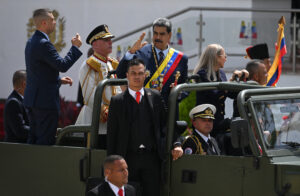
The Venezuelan strongman is attempting to steal the country’s presidential election and daring the people to stop him. But even if military leaders are backing him, Maduro is already weaker than he appears.
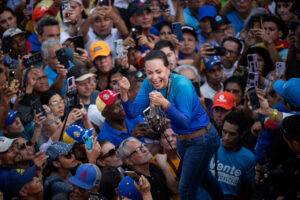
For years, the Venezuelan opposition has fought hard against a corrupt regime — and come up short. But this time, with four key ingredients in place, we are on the cusp of a historic victory.

The French president risked it all to hand the far right a stinging loss. But the celebration can’t last long. If the country is to avoid greater political chaos, voters must be encouraged to think about broader coalitions that go beyond a narrow left-right divide.
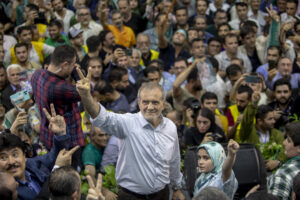
Masoud Pezeshkian won’t be a “reformer” in any genuine sense. Like all Iranian presidents, he has pledged his loyalty to Iran’s supreme leader. What he really offers is a softer version of Iran’s grim repression.

The far-right AfD surged ahead in the European Union elections. It is now one of Germany’s dominant parties, and not just part of the fringe.
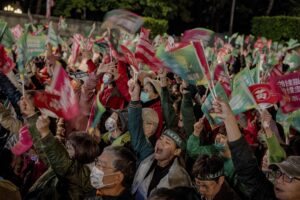
Millions of voters are casting ballots in a string of elections across the globe. At the midyear point, how well is democracy holding up?
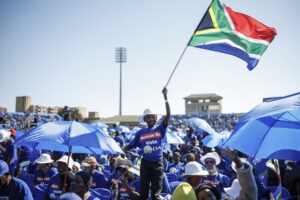
The African National Congress can no longer call all the shots, and opposition parties will have more sway. Will this lead to a more inclusive democracy or gridlock and division?

She was just elected Mexico’s first woman president in a landslide. The future of Mexico’s democracy rests on whether she can break from her predecessor’s ways and carve her own democratic path.
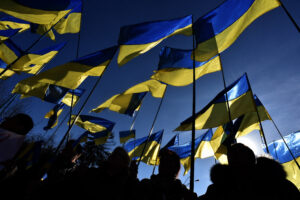
Ukrainians’ first priority is defending their country from Russia’s invasion. They would rather hold fair, free, and inclusive elections than vote for the sake of voting.

The danger is greater than the rise of far-right parties. In fact, there is a risk that in their eagerness to contain the far right, European leaders may do greater damage to democracy itself.
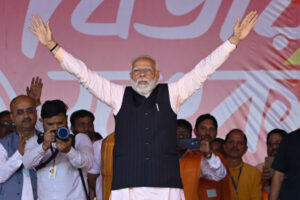
Voters are choosing more than the parties and politicians who will represent them. It is something more basic: The future of India’s secular democracy is on the ballot.
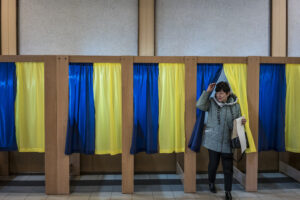
Russia’s brutal ongoing invasion is preventing Ukrainians from holding a presidential election and the campaigning that comes with it. What does that mean for Ukraine’s democracy?
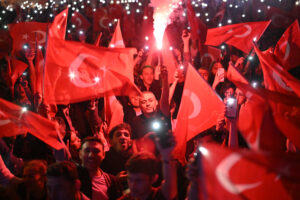
Less than a year after a bitter loss, the opposition dealt Recep Tayyip Erdoğan and his ruling party their largest electoral defeat in decades. The question is whether they can now build on their success.
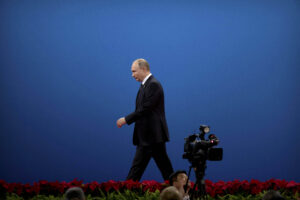
Everyone knows that Russia’s election is a fraud. The problem is no dictator ever feels safe enough, and Putin thinks even a fake election will signal to his cronies that he’s still in charge.

Russia’s dictator lives in fear. He knows the Russian people don’t support him. He can’t even muster a street rally without bribes or threats. No number of fake elections will change that.
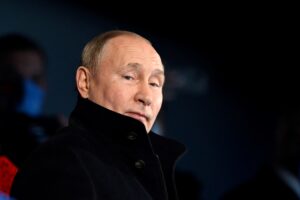
The Kremlin’s political theater shouldn’t be mistaken for an election or symbol of stability. It’s a sign of Putin’s weakness and the country’s descent into a deeper tyranny.
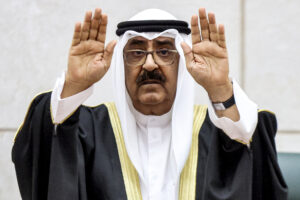
The Gulf kingdom has been a rare democratic experiment. But gridlock and the Emir’s mounting impatience with Kuwaiti politics may be on the cusp of bringing it to an end.
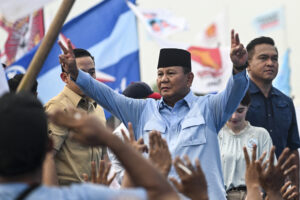
Indonesian voters have made Prabowo Subianto, a special-forces commander with a dark past, their next president. Even as voters flocked to the polls, his election is a harbinger of democracy’s decline.
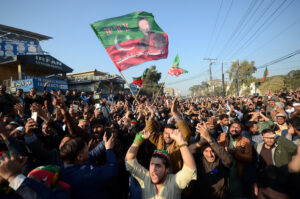
The country’s polls were marred by delayed results and charges of rigging. Worse, they might plunge Pakistan into an even deeper political crisis.
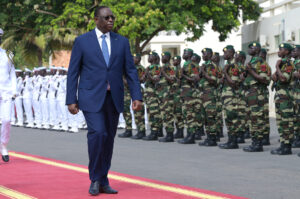
President Macky Sall has called off his country’s presidential election just weeks ahead of the vote. His unconstitutional decree will not only keep him in power, but threatens to throw Senegal into violent chaos.

El Salvador’s Nayib Bukele may be overwhelmingly popular, but he wasn’t going to let his electoral ambitions hinge on being well-liked. Instead, he rigged the playing field before the first vote was cast.

Taiwan’s voters rewarded the ruling party with an unprecedented third consecutive term, despite the mainland’s attempts to intimidate. Expect Beijing to find new ways to threaten the democracy off its coast.
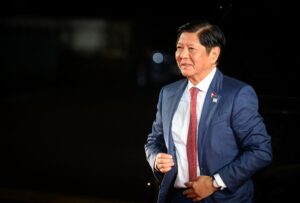
Many feared Ferdinand Marcos Jr.’s election would spell the end of Philippine democracy. But the dictator’s son has surprised nearly everyone, playing the role of a reformer while moving fast to sideline his populist rivals.
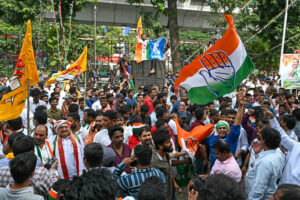
India just held five state elections that did more than declare winners and losers: They offered a roadmap for how to win the national contest in the world’s most populous democracy next year.

By choosing Javier Milei, Argentinian voters didn’t just reject the status quo. They have sent their country hurtling in an unknown direction.

The perennial Slovak politician practices a hardnosed, vengeful form of politics. It is also bad news for the future of Slovakian democracy.

They are organized, nonviolent, and they have come out in great numbers. Guatemalans may also be writing the script on how to defeat democracy’s enemies.
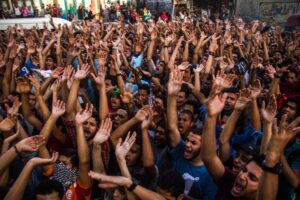
Egypt’s upcoming presidential elections are a sham. But the opposition can still take advantage of this moment to push for genuine reforms that the country desperately needs.
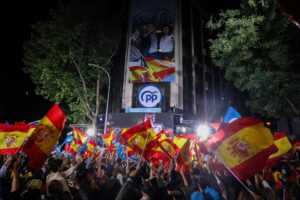
The world’s liberal democracies are deeply polarized. Here’s how we could help rebuild the political center.

Almost no one thought that an underdog political reformer could defeat Guatemala’s corrupt political machine, but Bernardo Arévalo did just that. Now comes the hard part.
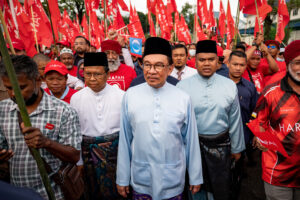
The democratic icon’s path to prime minister has been tortuous and long. But is Malaysia’s pluralism slipping away precisely when Anwar is getting his shot to lead the nation?

Marine Le Pen has remade her image to obscure her far-right populism. There is a real risk French voters won’t see through it.

Why Emmanuel Macron’s reelection hangs on him winning support from the very people he has ignored most.